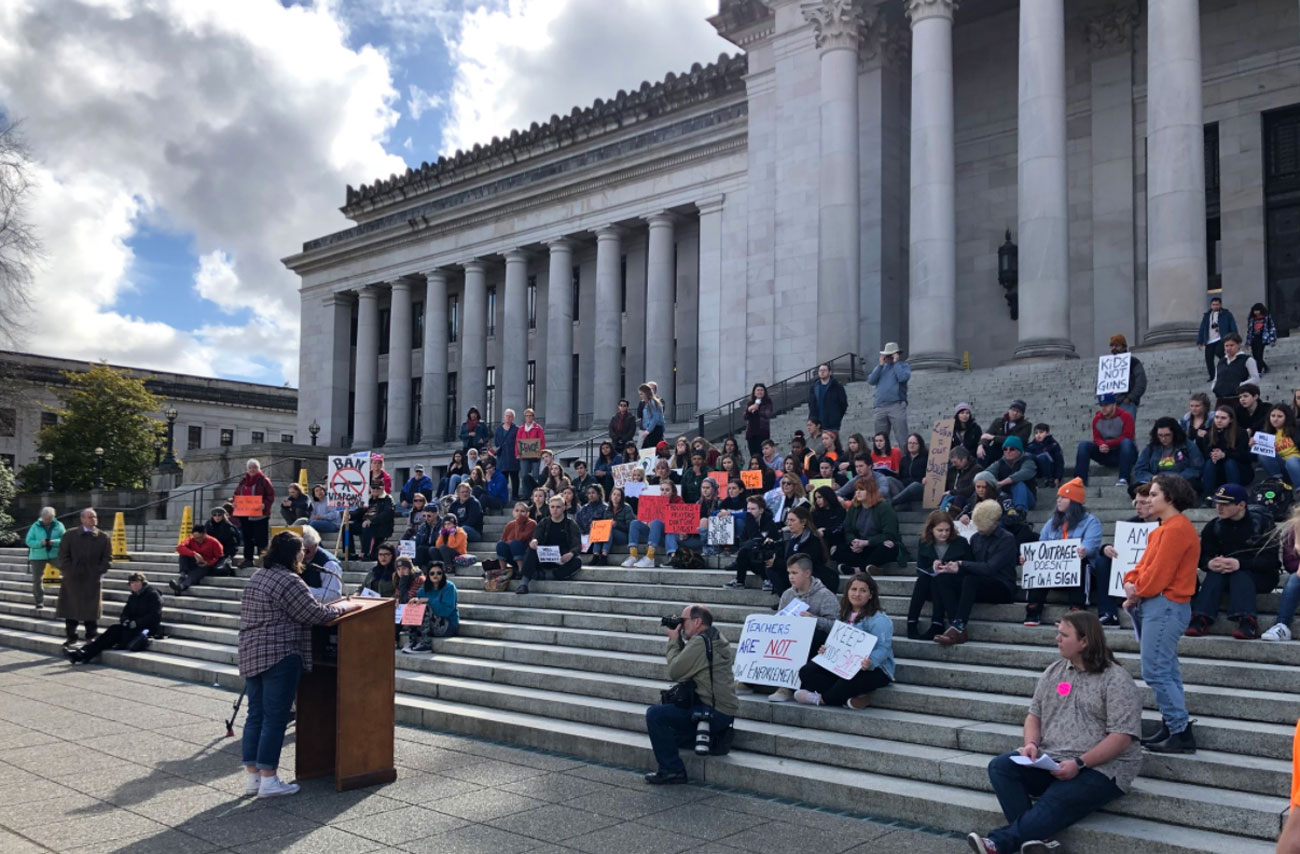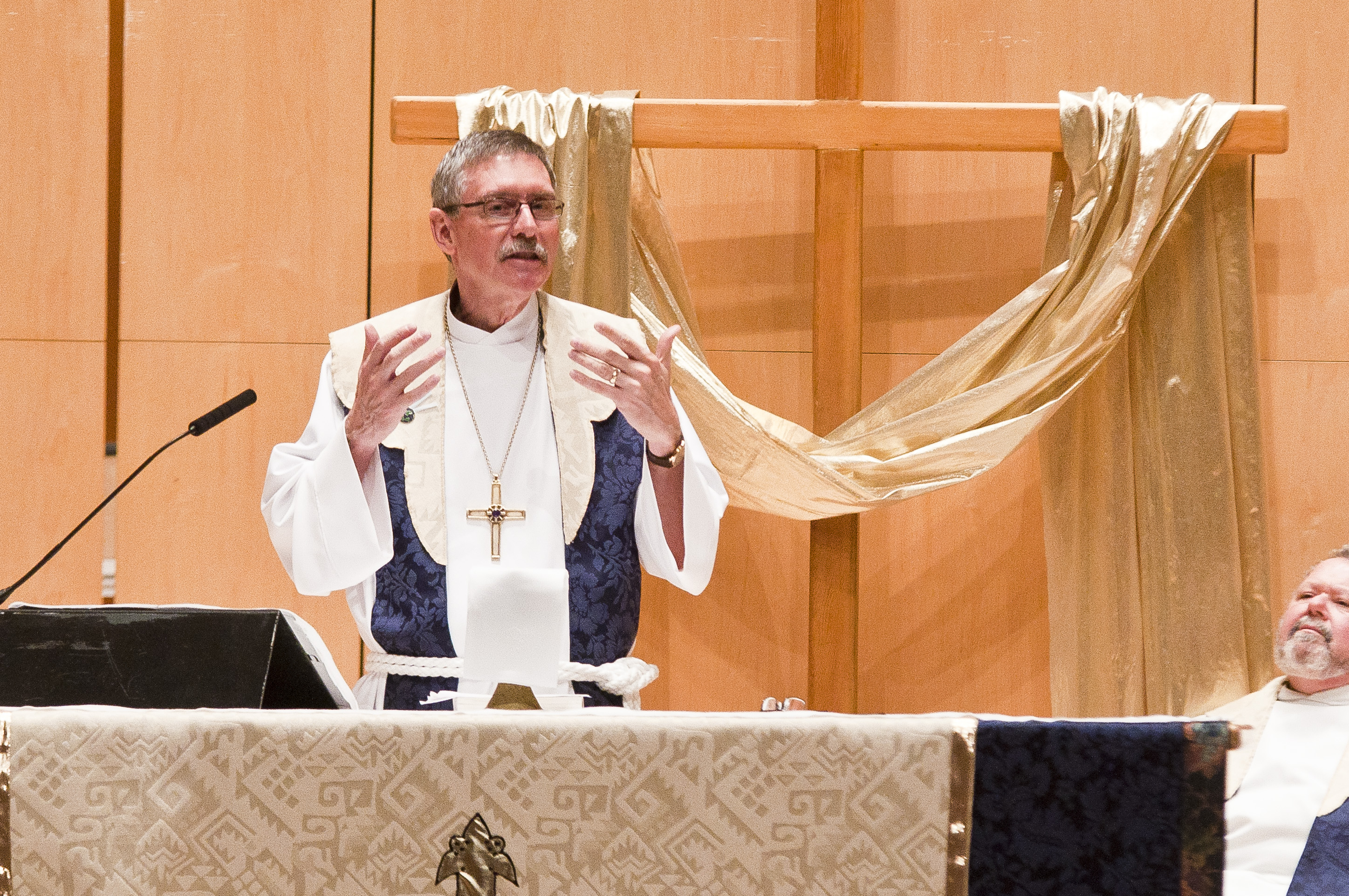Gurjot Kang & Brooke Thames; Opinion Editor & Editor-in-Chief;
kanggk@plu.edu, thamesbe@plu.edu
First year PLU student Gracie Anderson led the “Will Washington State Be Next?” rally Wednesday morning, March 14 in Olympia, WA. A group of Pacific Lutheran University students, along with students from other Washington state schools and local community members, gathered on the steps of the capitol building to advocate for improved gun control legislation.
The rally coincided with the Women March’s #ENOUGH: National School Walkout. Demonstrators carried handmade signs and sat on the steps of the capitol while Anderson gave a speech.
The rally developed out of Anderson’s “Will We Be Next?” campaign and was organized to compel the legislature to place the issue of gun violence in schools at the top of their political agenda for the next session.
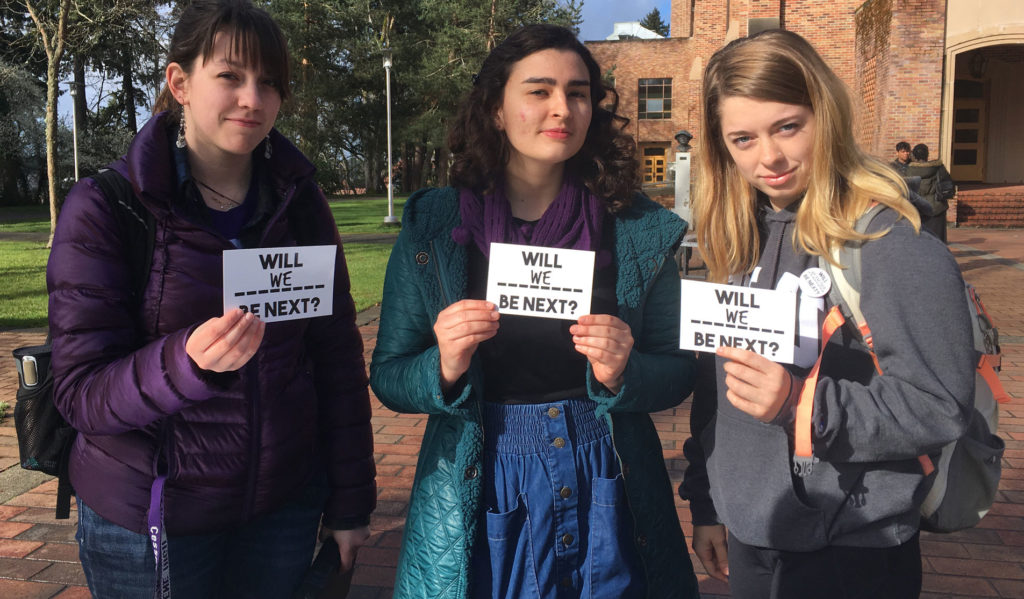
From left: Cessna Westra, Ava Cozzetto and Jordan Jasorka support “Will We Be Next?” during the PLU walkout.
“Will We Be Next?” is a social media campaign that petitions Washington state legislature to act upon the issue of mass school shootings and gun violence. Anderson launched the campaign on Twitter, Facebook and Instagram last month in response to the Feb. 14 school shooting at Marjory Stoneman Douglas High School in Parkland, Florida.
The campaign encourages students, parents and other supporters to post photos of themselves on social media holding signs with statements such as, “Will PLU Be Next?,” “Will THIS Parkland Be Next?” and “Will My Brother or Sister Be Next?”
Since its launch, students from various schools—including Mountain View Middle School, Olympia High School and Maple View Middle School—have submitted photos to the Facebook page. A number of PLU students have also contributed.
The “Will We Be Next?” campaign has also produced postcards on which supporters are encouraged to write messages addressed to Washington state legislators. A website—http://willwebenext.com—has also been created that details the various components of the campaign.
In addition to advocating on social media, “Will We Be Next?” is working to extend its reach to schools across the region. The campaign organizers ask students to set up “Will We Be Next?” booths in their schools to encourage their peers to get involved. The campaign provides a starter pack stocked with printable materials such as signs, printable petitions and letters addressed to state legislatures.
The campaign has also organized a task force comprised of “diverse Washington youth dedicated to researching the phenomenon of gun violence in schools.” The task force will investigate the efficiency of potential gun policy, including stricter background checks, increasing security in schools and providing more funding for school mental health services.
Anderson said she partly started the campaign after she caught herself feeling numb from the tragedy of another mass shooting.
“Right away I realized I was reacting differently to it than I normally do. I noticed myself a little bit desensitized, which was a major red flag for me because I never felt that way about a shooting before,” Anderson said. “I immediately looked at the pictures of the victims and read their stories to kind of get back to a place I usually am for these shootings—it’s a lot of grieving and fear.”
Anderson’s parents, who both work in schools, also served as an inspiration. Anderson’s father is a principal in a K-8 school in Olympia. Her mother is a mental health counselor at a second and third grade school in Chehalis, WA.
“Issues relating to school are really important to me because the people that mean the most to me are on school campuses everyday,” Anderson said.
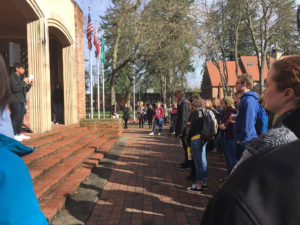
Sophomore, Mark Hernandez speaks at PLU walkout.
Anderson is but one example of student activism in light of recent events regarding gun violence in schools. Students from Marjory Stoneman Douglas High School have organized a demonstration titled “March for Our Lives,” which is set to occur March 24 in Washington D.C. “March for Our Lives” calls upon students, families, teachers and other allies to stand up for the safety of student lives.
“Not one more. We cannot allow one more child to be shot at school. We cannot allow one more teacher to make a choice to jump in front of a firing assault rifle to save the lives of students,” the “March for Our Lives” mission statement said. “We cannot allow one more family to wait for a call or text that never comes. Our schools are unsafe. Our children and teachers are dying. We must make it our top priority to save these lives.”
The PLU community has already started participating in acts of protest. Approximately 200 PLU students, faculty and staff gathered at Red Square 10 a.m. March 14 to participate in the national school walkout. The PLU walkout was coordinated by Associated Students of PLU and “Will My School Be Next?”
University Pastor Jen Rude opened the walkout with a prayer. ASPLU President Hilary Vo followed with a spoken word poem. Sophomore Mark Hernandez also spoke on the significance of the walkout, the importance of PLU community participation and the impact of the Route 91 Harvest Music Festival shooting on his hometown of Las Vegas, NV.
Acting President Allan Belton, Acting Provost Joanna Gregson and Vice President for Student Life Joanna Royce-Davis sent a campus-wide email March 10 about the walkout. The email expressed admiration for students’ embodiment of the PLU mission, but cautioned both students and faculty to honor established policies and practices regarding class attendance.
“Members of the PLU community, including our students, have different perspectives on how we can achieve safer communities,” the email stated. “While some students may be eager to participate in the walkout, others will expect class time to be devoted to instruction.”
Chair of Communication and Theatre Amy Young, Assistant Professor of Social Work David Simpson and Center for Gender Equity Gender-based Violence Advocate Dawn Cuthbertson were among the faculty and staff who attended the walkout. Young said she participated because she is done accepting the normalcy of gun violence in the United States.
“We are only as violent as we allow ourselves to be, and our Second Amendment, like our First, has reasonable limits,” Young said. “I walked out because I am a parent of school-age children, and I literally do not know what I would do if one of them, or any child, were next. I walked out because I am a teacher, and because arming me is not going to solve the problem, it will only escalate it.”
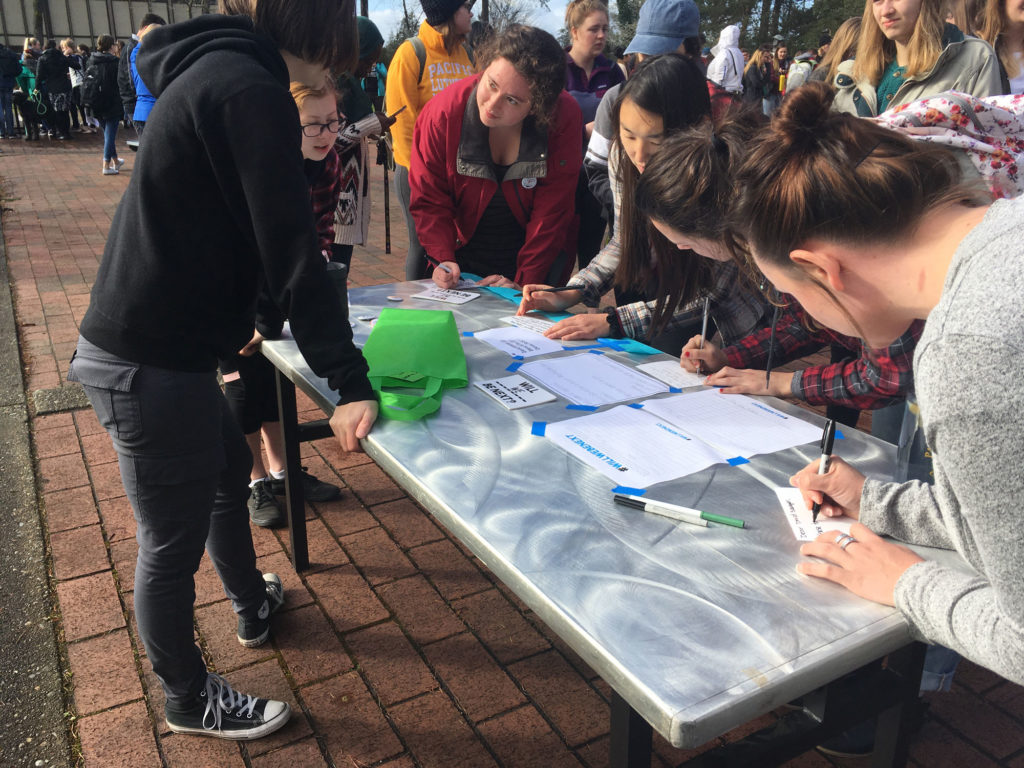
Students fill out “Will We Be Next?” postcards during the PLU walkout.
Anderson’s own “Will We Be Next?” student movement has garnered regional, national and international attention. Washington state news organizations like Kiro7, King5 and KomoNews have reported on the campaign. The Chicago Tribune also featured a story. Anderson has even received messages of support from around the globe.
“What’s been absolutely phenomenal is the nation-wide support and the solidarity from people across the country,” she said.
Though the campaign has earned support, it has also earned criticism from commenters on various online news stories about “Will We Be Next?” Anderson said she’s seen various messages reducing her campaign to a cry for attention.
“Yes, I do want attention because it is so important to bring attention to this issue,” Anderson said. “If a social media campaign is going to do it, then so be it.”
First-year University of Washington Seattle student McKenzie Murray, one of Anderson’s partners in the campaign, said she is proud to see “Will We Be Next?” gain recognition.
“It’s been really positive to see all the attention that Gracie is getting for the campaign because […] she’s just been so incredibly committed to helping other people,” Murray said. “She’s always been so incredibly dedicated to helping people, and seeing the good in people, and nurturing their potential in a way that is so totally unique [that I] haven’t seen in any other person in my life.”
Anderson said she is truly overwhelmed and thankful for all the support. She said she hopes that her campaign can help motivate change in the future so that students will no longer have to live in fear of whether they will be next.
Anderson said what she really wants at the end of the day is for students, her family, friends, peers, professors and herself to feel safer in school.
“What we really all want is safety, and we want our kids to be safe,” she said. “We want to grow up in a world—I want to grow up in a world—where my kids don’t have to experience this.”
















